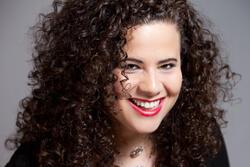Between Andrew Jackson and Hitler: An Interview with Sarah Deer
Sarah Deer is a Jewish Native American lawyer and professor of Women, Gender, and Sexuality Studies who has worked to end violence against women for more than two decades. Her activism has led to legal updates that enable tribes to more easily prosecute sexual assault on their land. She’s also the author of four textbooks about tribal law, and in 2014, received a MacArthur Fellowship for her work. I first learned about Deer from her appearance in Jaclyn Friedman’s book Unscrewed and knew that I had to talk to her and learn more about her career and social justice efforts.
I spoke to Deer about how her two heritages inform her activism; about her work to establish a Muscogee Studies field; and about her efforts to reframe rape as a humanitarian crisis.
Tell us about the 2013 update to the Violence Against Women Act (VAWA), which allowed for tribes to prosecute non-tribe members on reservations. How did you advocate for that update, and how did it affect domestic violence and sexual assault on reservations?
In 1978, the Supreme Court ruled that tribal nations could not exercise criminal jurisdiction over non-Indians on reservations––no matter how heinous the crime. Today, Native people are the most likely people in the United States to suffer from interracial crime. The 2013 reauthorization of the Violence Against Women Act offered a minor adjustment to the 1978 ruling. Now, domestic violence committed by non-Indians can be prosecuted by tribal nations. I played several roles in the years leading up to VAWA 2013. I worked to raise the issue’s profile by authoring reports and articles describing the plight of Native women who were victimized by their non-Indian spouses. I also was called as a witness in two Congressional hearings leading up to the passage. Once VAWA 2013 was introduced in Congress, I focused my attention on encouraging Native people to lobby for its passage, and I was able to attend the Obama signing ceremony in March of 2013.
What's the next systemic battle that you're planning to fight?
Now that tribal nations have started prosecuting non-Indians for domestic violence, I am part of a movement to expand that jurisdiction to include non-Indians who commit other crimes, such as sexual violence and homicide.
I was interested in your idea of rape as a violation of a person's humanity. How did you develop this idea? And how can reframing rape in this fashion change the way we think about, talk about, and prosecute rape in our society?
The American legal system, based on patriarchal European structures, has an extremely poor track record of recognizing the harm of rape. The original Anglo-American rape laws, inherited from England, did not recognize the agency of victims. Instead, the rape laws viewed people who reported sexual violence with skepticism and offered unique protection to the accused. We need to rethink the entire framework of sexual assault laws in order to make a dent in the high rates of sexual violence. Federal data released in 2016 revealed that over half of Native women will experience sexual violence––so clearly, the legal system has failed us.
Instead of perceiving rape as a typical crime, I believe it should be conceived as a humanitarian crisis that deserves a fresh legal approach. I have based some of my analysis on the stories of sexual violence that survivors across Indian country have shared with me. The lingering effects of sexual violence are not limited to physical and psychological harms. Survivors also talk about intellectual, emotional, and spiritual harms.
An effective legal system will acknowledge these systemic harms, perhaps allowing for a wider latitude for achieving a successful prosecution, and opening up more civil remedies for survivors who choose to sue their assailants.
In Unscrewed, you mention an anthology of Muscogee academics that you're putting together. Can you tell us more about the kinds of work you're highlighting through that project?
So often, scholarly inquiries into the lives of Native people focus on the past. Very few books are written about the intellectual lives of Native people or the future of Native people. I would like to be part of developing a field of “Mvskoke Studies”––which would parallel other areas of inquiry such as “American Studies” or “Ethnic Studies.” Mvskoke people are not trapped in the past, yet the literature sometimes suggests so. As a result, the unique contemporary epistemologies and philosophies of Mvskoke people are not fully explicated in the scholarly literature. I have reached out to other Mvskoke scholars in a wide range of disciplines about the development of an anthology exploring our rich intellectual tradition. The project is still in its early stages, but I am encouraged by other Indigenous Studies scholars who have developed similar tribal-specific projects. I have written about the government structures of the Mvskoke people, which provide even more “checks and balances” than the American system––thus strengthening the ability of Mvskoke people to resist tyranny and oppression. I believe that a Mvskoke Studies field will offer lessons and insight to all people interested in equitable societies.
How has your experience with breast cancer affected your perspective on writing and activism?
Battling aggressive breast cancer at the age of 33 required me to think more critically about my career goals vis-a-vis writing and activism. While I eschew the idea of cancer as a “gift”––the reality is, facing mortality had a dramatic impact on the way I think about the potential legacy of my work. While my health has been stable, with no signs of disease for over ten years, my cancer experience continues to affect my outlook on life. I want my work to have “staying power”––and thus I concentrate my efforts on proposing long-term solutions that will have lasting impact.
In Unscrewed, you tell Jaclyn Friedman that, between Andrew Jackson and Hitler, you shouldn't be here. To what extent did your Native and Jewish heritage inspire you to pursue your line of work?
My maternal grandfather was Jewish, but he passed away when my mother was thirteen. My mother was raised as a Roman Catholic, so I did not grow up with specific links to Judaism per se. Nevertheless, I have been cognizant of my Jewish heritage since I was quite young. My ancestors came from Germany to the United States in the 1880s. In my limited research, I have discovered that the town of Bacharach in Germany has long been a site of anti-Jewish violence and murder dating back to the 13th century––the latest incidents taking place during World War II. As of 1942, all remaining Jewish people were deported from Bacharach by the Nazis. It is likely, then, that my ancestors who stayed in Germany were subjected to extermination. As a child, I voraciously read and re-read the Diary of Anne Frank, which had a tremendous impact on my worldview, particularly regarding entrenched anti-Semitism and the tragic outcomes of hatred.
I have more connection to my Mvskoke (Native American) heritage from my father’s side of the family. I am a citizen of the Muscogee (Creek) Nation of Oklahoma. My father and paternal grandfather were instrumental in raising me with a Native identity. The Mvskoke people were subjected to slaughter and ethnic cleansing at the hands of Andrew Jackson. I remember my grandfather’s expression when he first told me about the Trail of Tears. At times, he became so choked up that he was unable to talk about it.
Since law school, I have focused my career on the high rates of violence on Indian reservations. I believe this crime rate has much to do with the history of American laws and policies that have served to oppress Native people. I see concrete connections between how genocide and ethnic cleansing have served to marginalize both groups of people. I want to be part of exposing and documenting these histories.
Unscrewed is a JWA Book Club pick; see our discussion questions for the book.







